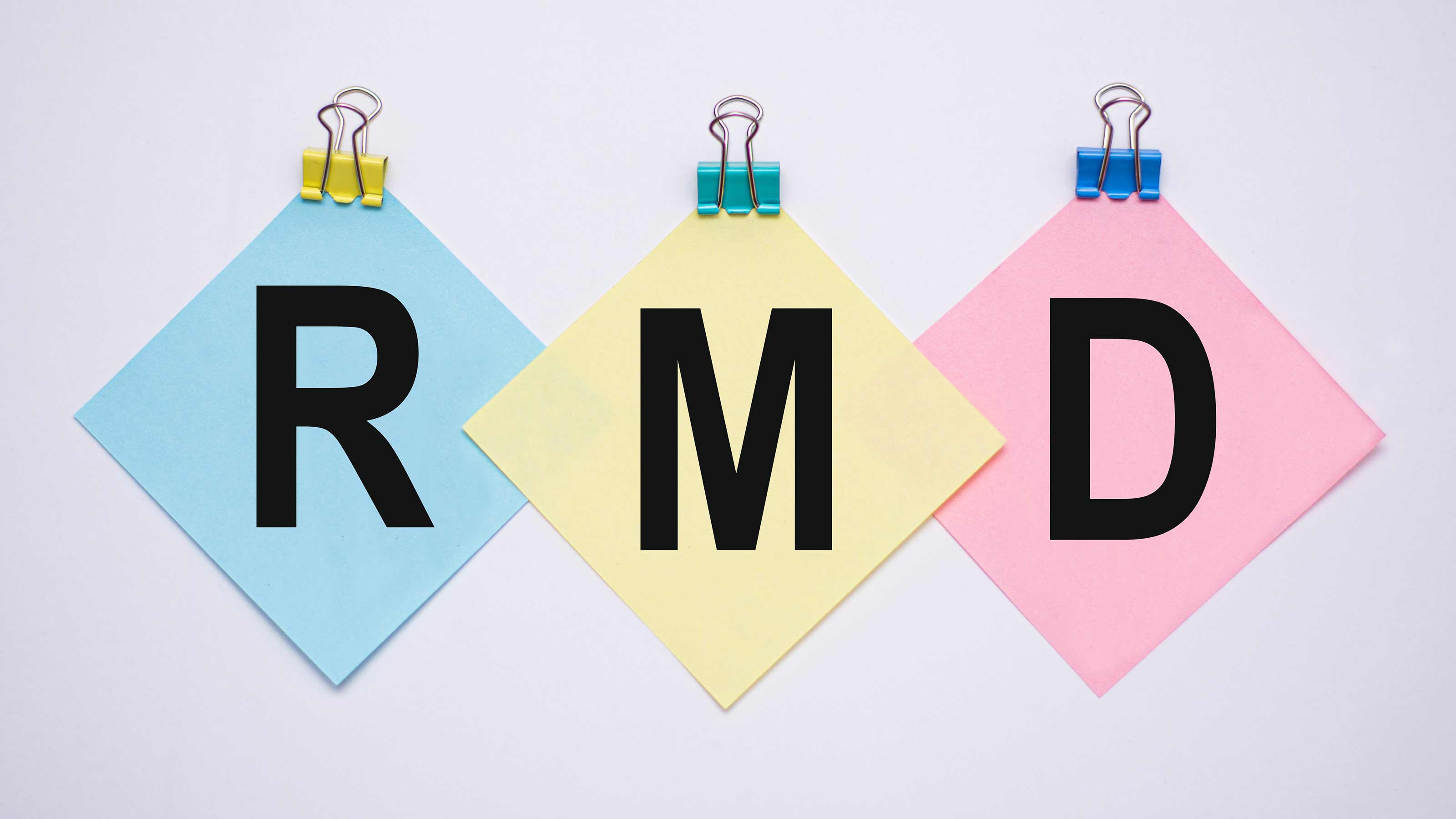Taxes on 401(k) and IRA Withdrawals
The rates are the same, but the amount of money that is taxed depends on whether you made pre-tax or after-tax contributions to your accounts.

Profit and prosper with the best of Kiplinger's advice on investing, taxes, retirement, personal finance and much more. Delivered daily. Enter your email in the box and click Sign Me Up.
You are now subscribed
Your newsletter sign-up was successful
Want to add more newsletters?

Delivered daily
Kiplinger Today
Profit and prosper with the best of Kiplinger's advice on investing, taxes, retirement, personal finance and much more delivered daily. Smart money moves start here.

Sent five days a week
Kiplinger A Step Ahead
Get practical help to make better financial decisions in your everyday life, from spending to savings on top deals.

Delivered daily
Kiplinger Closing Bell
Get today's biggest financial and investing headlines delivered to your inbox every day the U.S. stock market is open.

Sent twice a week
Kiplinger Adviser Intel
Financial pros across the country share best practices and fresh tactics to preserve and grow your wealth.

Delivered weekly
Kiplinger Tax Tips
Trim your federal and state tax bills with practical tax-planning and tax-cutting strategies.

Sent twice a week
Kiplinger Retirement Tips
Your twice-a-week guide to planning and enjoying a financially secure and richly rewarding retirement

Sent bimonthly.
Kiplinger Adviser Angle
Insights for advisers, wealth managers and other financial professionals.

Sent twice a week
Kiplinger Investing Weekly
Your twice-a-week roundup of promising stocks, funds, companies and industries you should consider, ones you should avoid, and why.

Sent weekly for six weeks
Kiplinger Invest for Retirement
Your step-by-step six-part series on how to invest for retirement, from devising a successful strategy to exactly which investments to choose.
Is that true when you withdraw your money at retirement that you pay less tax for a traditional IRA than a 401(k)?
The tax rates are the same, but the amount of money that is taxed may be different depending on whether your made pre-tax or after-tax contributions.
The great thing about traditional IRAs and 401(k)s is that the earnings are tax-deferred. You don't have to pay taxes on dividends, capital-gains distributions or profits when you sell the investments as long as you don't withdraw the money from the account. When you finally do take the money in retirement, it is taxed at your income-tax rate, which can be from 10% to 35% depending on your income. After you retire, your income-tax rate is likely to be lower than it was when you were working.
From just $107.88 $24.99 for Kiplinger Personal Finance
Become a smarter, better informed investor. Subscribe from just $107.88 $24.99, plus get up to 4 Special Issues

Sign up for Kiplinger’s Free Newsletters
Profit and prosper with the best of expert advice on investing, taxes, retirement, personal finance and more - straight to your e-mail.
Profit and prosper with the best of expert advice - straight to your e-mail.
But the portion of your withdrawals that is taxed may be different for your 401(k) than it is for your traditional IRA. If you've only made pre-tax contributions to the account -- which is the case for many 401(k) participants -- then the entire amount you withdraw will be taxed. But if you've made any non-deductible contributions -- common for IRA participants with income above the cut-off for deductibility -- then you'll owe taxes only on the earnings from those contributions, but not the contributions themselves.
If you withdraw money from several traditional IRAs to which you made both tax-deductible and non-deductible contributions, then the portion that escapes taxes is based on the ratio of non-deductible contributions to the total balance in all of your IRAs. See The Taxing Side of IRA Conversions for more information.
And if you have any Roth IRAs, the tax calculation becomes much easier. Your Roth withdrawals are 100% tax-free as long as you're at least age 59½ and have had a Roth for at least five years.
For more information about retirement-savings withdrawals, see How to Tap Your Retirement Accounts and Planning Your Retirement Tax Strategy.
.
Profit and prosper with the best of Kiplinger's advice on investing, taxes, retirement, personal finance and much more. Delivered daily. Enter your email in the box and click Sign Me Up.

As the "Ask Kim" columnist for Kiplinger's Personal Finance, Lankford receives hundreds of personal finance questions from readers every month. She is the author of Rescue Your Financial Life (McGraw-Hill, 2003), The Insurance Maze: How You Can Save Money on Insurance -- and Still Get the Coverage You Need (Kaplan, 2006), Kiplinger's Ask Kim for Money Smart Solutions (Kaplan, 2007) and The Kiplinger/BBB Personal Finance Guide for Military Families. She is frequently featured as a financial expert on television and radio, including NBC's Today Show, CNN, CNBC and National Public Radio.
-
 Dow Adds 1,206 Points to Top 50,000: Stock Market Today
Dow Adds 1,206 Points to Top 50,000: Stock Market TodayThe S&P 500 and Nasdaq also had strong finishes to a volatile week, with beaten-down tech stocks outperforming.
-
 Ask the Tax Editor: Federal Income Tax Deductions
Ask the Tax Editor: Federal Income Tax DeductionsAsk the Editor In this week's Ask the Editor Q&A, Joy Taylor answers questions on federal income tax deductions
-
 States With No-Fault Car Insurance Laws (and How No-Fault Car Insurance Works)
States With No-Fault Car Insurance Laws (and How No-Fault Car Insurance Works)A breakdown of the confusing rules around no-fault car insurance in every state where it exists.
-
 6 RMD Changes We Could See This Year
6 RMD Changes We Could See This YearMaking Your Money Last Congress is considering two bills that would make major changes to required minimum distributions. Could your RMDs be affected?
-
 PODCAST: The “Gray Resignation” with Liz Windisch
PODCAST: The “Gray Resignation” with Liz WindischMaking Your Money Last Pandemic pressures (and high stock and real estate values) are leading many to try to move up retirement. Plus, tax-filing season gets under way.
-
 Democrats Will Get to Taxes and Health Care Soon Enough -- What It Will Mean for Your Pocketbook
Democrats Will Get to Taxes and Health Care Soon Enough -- What It Will Mean for Your PocketbookPolitics With President Joe Biden in the White House and a narrow Democratic majority in the Senate and House of Representatives, Democrats have a clearer path to enact their agenda.
-
 Retirees' Guide to Giving for the Greatest Impact
Retirees' Guide to Giving for the Greatest ImpactMaking Your Money Last The need for charity is climbing, particularly to combat the rising poverty, hunger and homelessness from the pandemic’s economic fallout. Here's how you can help.
-
 The Annuity With a Tax-Planning Twist
The Annuity With a Tax-Planning TwistFinancial Planning A qualified life annuity contract helps retirees with guaranteed payments to last their entire lives.
-
 Now’s the Time for Estate Tax Planning
Now’s the Time for Estate Tax PlanningFinancial Planning There's a wealth of opportunity with IRS interest rates at an all-time low and the federal estate and gift tax exemption at an historic high.
-
 How to Create Income for Life
How to Create Income for LifeFinancial Planning Having a paycheck you can depend on in retirement is more important than ever.
-
 Retirees Get Another Break with Expansion of RMD Waiver
Retirees Get Another Break with Expansion of RMD WaiverMaking Your Money Last The CARES Act cancelled "required minimum distributions" for 2020...and the IRS just expanded that relief to help more seniors and give more time to undo previous withdrawals.